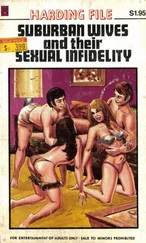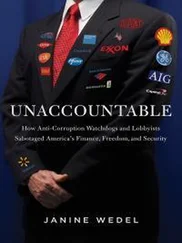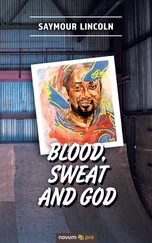Andrea Dworkin - Our Blood - Prophecies and Discourses on Sexual Politics
Здесь есть возможность читать онлайн «Andrea Dworkin - Our Blood - Prophecies and Discourses on Sexual Politics» весь текст электронной книги совершенно бесплатно (целиком полную версию без сокращений). В некоторых случаях можно слушать аудио, скачать через торрент в формате fb2 и присутствует краткое содержание. Жанр: Публицистика, на английском языке. Описание произведения, (предисловие) а так же отзывы посетителей доступны на портале библиотеки ЛибКат.
- Название:Our Blood: Prophecies and Discourses on Sexual Politics
- Автор:
- Жанр:
- Год:неизвестен
- ISBN:нет данных
- Рейтинг книги:3 / 5. Голосов: 1
-
Избранное:Добавить в избранное
- Отзывы:
-
Ваша оценка:
- 60
- 1
- 2
- 3
- 4
- 5
Our Blood: Prophecies and Discourses on Sexual Politics: краткое содержание, описание и аннотация
Предлагаем к чтению аннотацию, описание, краткое содержание или предисловие (зависит от того, что написал сам автор книги «Our Blood: Prophecies and Discourses on Sexual Politics»). Если вы не нашли необходимую информацию о книге — напишите в комментариях, мы постараемся отыскать её.
Our Blood: Prophecies and Discourses on Sexual Politics — читать онлайн бесплатно полную книгу (весь текст) целиком
Ниже представлен текст книги, разбитый по страницам. Система сохранения места последней прочитанной страницы, позволяет с удобством читать онлайн бесплатно книгу «Our Blood: Prophecies and Discourses on Sexual Politics», без необходимости каждый раз заново искать на чём Вы остановились. Поставьте закладку, и сможете в любой момент перейти на страницу, на которой закончили чтение.
Интервал:
Закладка:
the need to root out from all anger the spirit of
murder.
Barbara Deming, “On Anger”
We Cannot Live Without Our Lives


Now, women do not ask half of a kingdom but
their rights, and they don’t get them. When she
comes to demand them, don’t you hear how sons
hiss their mothers like snakes, because they ask
for their rights; and can they ask for anything
less?. . . But we’ll have our rights; see if we don’t;
and you can’t stop us from them; see if you can.
You can hiss as much as you like, but it is coming.
Sojourner Truth, 1853


I thank Kitty Benedict, A
C
K
N
O
W
L
E
D
G
M
T
S
Phyllis Chesler, Barbara
Deming, Jane Gapen, Beatrice Johnson, Eleanor
Johnson, Liz Kanegson, Judah Kataloni, Jeanette
Koszuth, Elaine Markson, and Joslyn Pine for
their help and faith.
I thank John Stoltenberg, who has been my
closest intellectual and creative collaborator.
I thank my parents, Sylvia and Harry Dworkin,
for their continued trust and respect.
I thank all of the women who organized the
conferences, programs, and classes at which I
spoke.
I thank those feminist philosophers, writers,
organizers, and prophets whose work sustains and
strengthens me.


PREFA CE
Our Blood is a book that grew out of a situation. The
situation was that I could not get my work published. So I
took to public speaking—not the extemporaneous exposition of thoughts or the outpouring of feelings, but crafted prose that would inform, persuade, disturb, cause recognition, sanction rage. I told myself that if publishers would not publish my work, I would bypass them altogether. I
decided to write directly to people and for my own voice. I
started writing this way because I had no other choice: I saw
no other way to survive as a writer. I was convinced that it
was the publishing establishment—timid and powerless
women editors, the superstructure of men who make the
real decisions, misogynistic reviewers—that stood between
me and a public particularly of women that I knew was
there. The publishing establishment was a formidable
blockade, and my plan was to swim around it.
In April 1974 my first book-length work of feminist
theory, Woman Hating, was published. Before its publication I had had trouble. I had been offered magazine assignments that were disgusting. I had been offered a great
deal of money to write articles that an editor had already
outlined to me in detail. They were to be about women or
sex or drugs. They were stupid and full of lies. For instance,
I was offered $1500 to write an article on the use of
barbiturates and amphetamines by suburban women. I was
to say that this use of drugs constituted a hedonistic
rebellion against the dull conventions of sterile housewifery,
that women used these drugs to turn on and swing and have


a wonderful new life-style. I told the editor that I suspected
women used amphetamines to get through miserable days
and barbiturates to get through miserable nights. I suggested, amiably I thought, that I ask the women who use the drugs why they use them. I was told flat-out that the article
would say what fun it was. I turned down the assignment.
This sounds like great rebellious fun—telling establishment
types to go fuck themselves with their fistful of dollars—but
when one is very poor, as I was, it is not fun. It is instead
profoundly distressing. Six years later I finally made half
that amount for a magazine piece, the highest I have ever
been paid for an article. I had had my chance to play ball
and I had refused. I was too naive to know that hack writing
is the only paying game in town. I believed in “literature, ”
“principles, ” “politics, ” and “the power of fine writing to
change lives. ” When I refused to do that article and others,
I did so with considerable indignation. The indignation
marked me as a wild woman, a bitch, a reputation reinforced during editorial fights over the content of Woman Hating, a reputation that has haunted and hurt me: not hurt
my feelings, but hurt my ability to make a living. I am in
fact not a “lady, ” not a “lady writer, ” not a “sweet young
thing. ” What woman is? My ethics, my politics, and my
style merged to make me an untouchable. Girls are supposed to be invitingly touchable, on the surface or just under.
I thought that the publication of Woman Hating would
establish me as a writer of recognized talent and that then I
would be able to publish serious work in ostensibly serious
magazines. I was wrong. The publication of Woman Hating,
about which I was jubilant, was the beginning of a decline
that continued until 1981 when Pornography: Men Possessing Women was published. The publisher of Woman Hating did not like the book: I am considerably understating here.
I was not supposed to say, for example, “Women are


raped. ” I was supposed to say, “Green-eyed women with
one leg longer than the other, hair between the teeth,
French poodles, and a taste for sauteed vegetables are
raped occasionally on Fridays by persons. ” It was rough. I
believed I had a right to say what I wanted. My desires were
not particularly whimsical: my sources were history, facts,
experience. I had been brought up in an almost exclusively
male tradition of literature, and that tradition, whatever its
faults, did not teach coyness or fear: the writers I admired
were blunt and not particularly polite. I did not understand
that—even as a writer—I was supposed to be delicate,
fragile, intuitive, personal, introspective. I wanted to claim
the public world of action, not the private world of feelings.
My ambition was perceived as megalomaniacal—in the
wrong sphere, demented by prior definition. Yes, I was
Читать дальшеИнтервал:
Закладка:
Похожие книги на «Our Blood: Prophecies and Discourses on Sexual Politics»
Представляем Вашему вниманию похожие книги на «Our Blood: Prophecies and Discourses on Sexual Politics» списком для выбора. Мы отобрали схожую по названию и смыслу литературу в надежде предоставить читателям больше вариантов отыскать новые, интересные, ещё непрочитанные произведения.
Обсуждение, отзывы о книге «Our Blood: Prophecies and Discourses on Sexual Politics» и просто собственные мнения читателей. Оставьте ваши комментарии, напишите, что Вы думаете о произведении, его смысле или главных героях. Укажите что конкретно понравилось, а что нет, и почему Вы так считаете.












